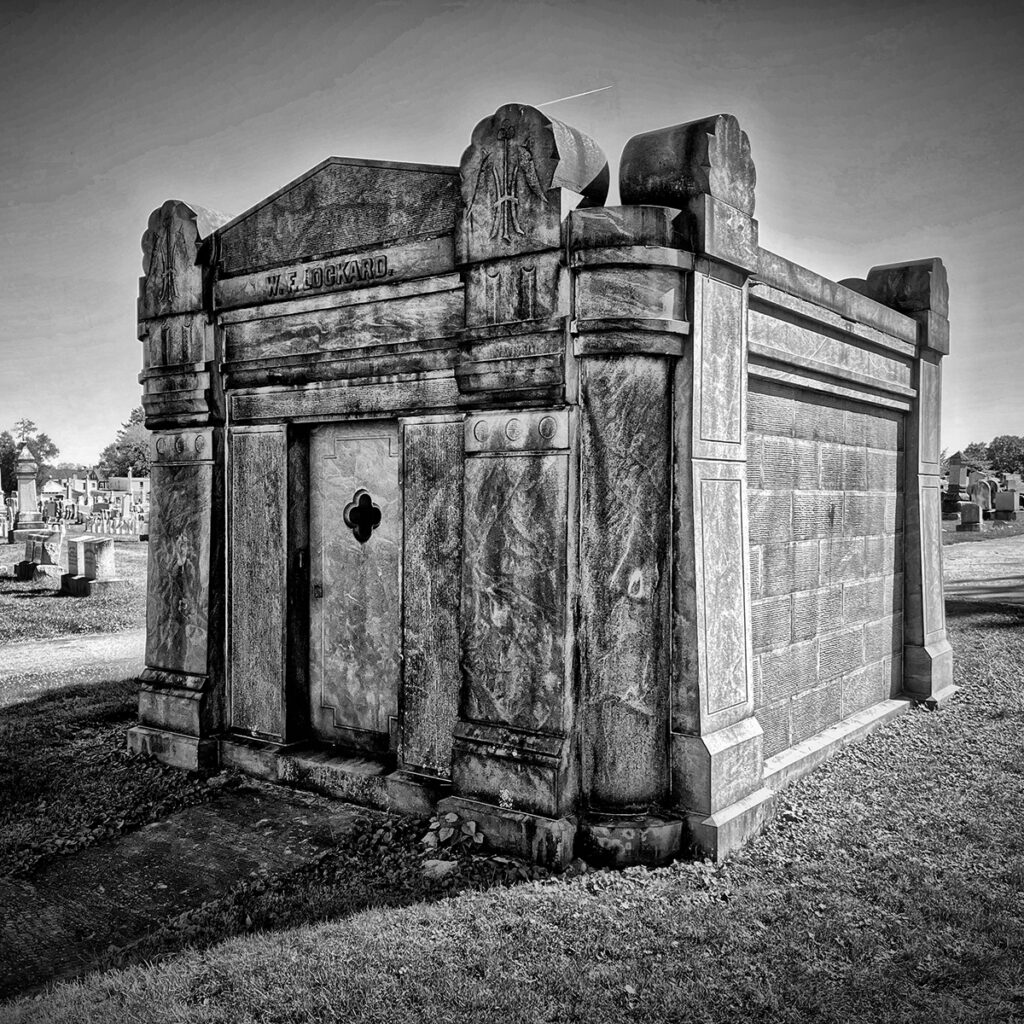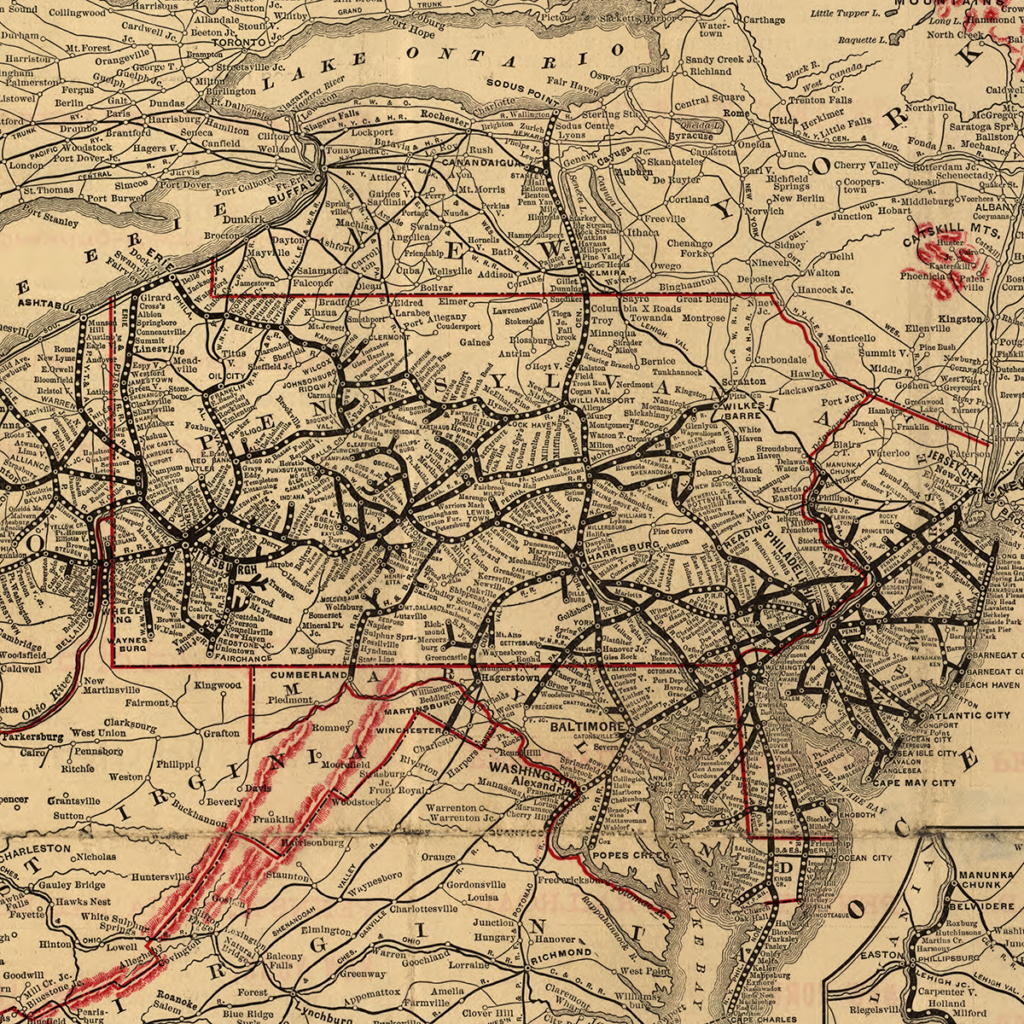Railroad Superintendant / Philanthropist
Born: 19 January 1825, Columbia, Pennsylvania
Died: 21 January 1889, Philadelphia, Pennsylvania
William Fordney Lockard’s obituary from the Lancaster Examiner dated 23 January 1889:
. . . . .
William F. Lockard, ex-superintendent of the Philadelphia Division of the Pennsylvania Railroad, died at his residence in Philadelphia on Monday, in the sixty-fourth year of his age.
Mr. Lockard was born in Columbia on January 19, 1825, his father being Charles Lockard, who in the earlier years of his life was a pilot on the Susquehanna, later became a contractor and died at Peach Bottom in 1826, just a year after the birth of the subject of this sketch. When about nine years old William F. was indentured to James Moore of Union County who was a brdige builder, having erected the second bridge across the Susquehanna between Columbia and Wrightsville in 1834 (the bridge destroyed to stop the rebels).
He remained six years in Union County, returning to his native town to accept employment on the new line of railroad then being built to avoid the inclined plane at Columbia. Afterwards he worked for two years on a canal boat plying between Columbia and Hollidaysburg, and then became an agent on a train of cars running over the “State Road” between Columbia and Philadelphia, owned by Messrs. Bingham, Dock & Stratton, one of the tow transportation houses then doing business on the Columbia Basin.
At eighteen he was a fireman upon a locomotive, and an engineer four years later, in the employ of the State. He continued in that capacity until 1857, when the main road owned by the State was sold to the Pennsylvania Central.
In the summer of 1858 he was made dispatcher of trains at Columbia, occupying that position until March 1, 1867, when he was promoted to Superintendent of the Philadelphia Division, a position he held until 1881, when enfeebled health compelled him to resign and retire from active business. The company was reluctant to part with his services, and he was appointed Superintendent of the Junction Railroad, a position of like responsibili-ties, but much less laborious.
Mr. Lockard was essentially a self-made man, and did not depend upon accidental good fortune to make his career one of success. His energy, industry and inherent force have been powerful levers which have lifted him from dependence to a position of influence and independence.
In the various positions, he has held the confidence and respect of his superior officers have invariably been manifested towards him, while the most flattering testimonials have evinced the affection of his subordinates. He was a member of the California Excursion party, and regularly attended its annual dinners.
Mr. Lockard was married in 1850, in Middletown, to Margaret B., daughter of Daniel Fager, formerly of Reading, and the following children were born to them, all of whom are living, except Letitia, who died in infancy: Jennie B, Samuel L., Thomas G., Edwin J., Letitia, Mrs. W. H. Stevens, and Lucy F.
. . . . .
After his death, Columbia administered the Lockard Trust Fund set up to aid indigent widows and orphans of the borough. William’s mother was Elizabeth Fordney, daughter of William Fordney who emigrated from Germany to Columbia, where he died. Mr. Lockard’s mother survived her husband fifty years and died in Columbia in 187 at the age of seventy-nine. Mr. Lockard’s father was thirty when he died having at the time of his death been engaged in the construction of a public canal.
At the time of William Fordney Lockard’s death, his estate amounted to more than a quarter million dollars (over $9 million in 2025 dollars). In addition to the trust fund he created for widows and orphans, monies from that fund was used to maintain a night school he’d founded, and to keep his mausoleum at Mount Bethel Cemetery in good condition. The symbol used on Mount Bethel’s logo was inspired by the decorative door vent found on Mr. Lockard’s mausoleum.


the lockard mausoleum at mount bethel cemetery
lockard’s responsibilities grew with his experience